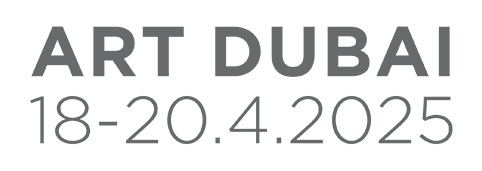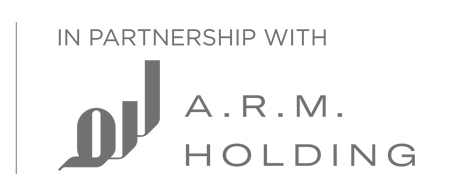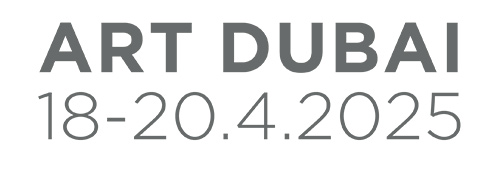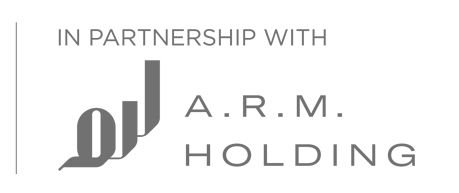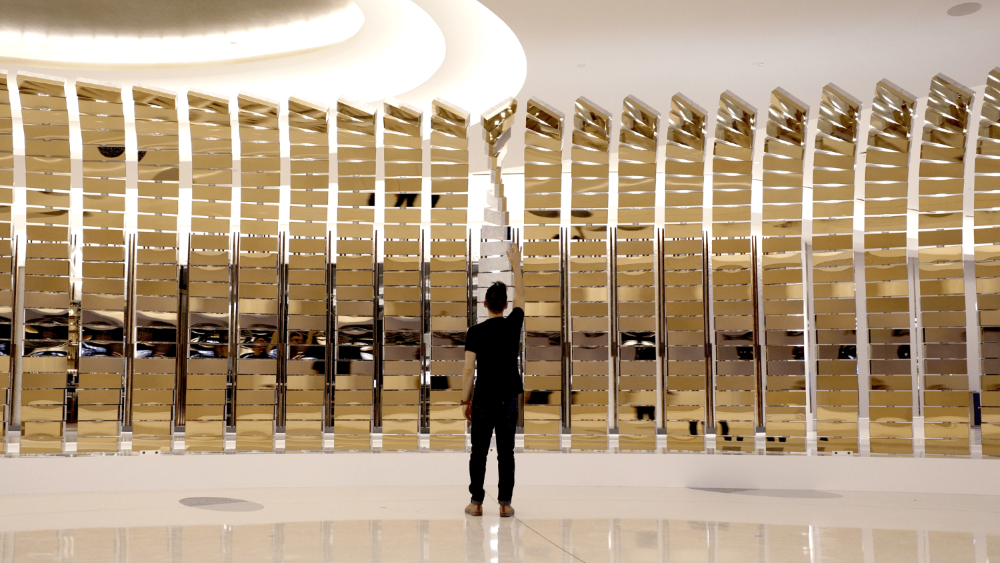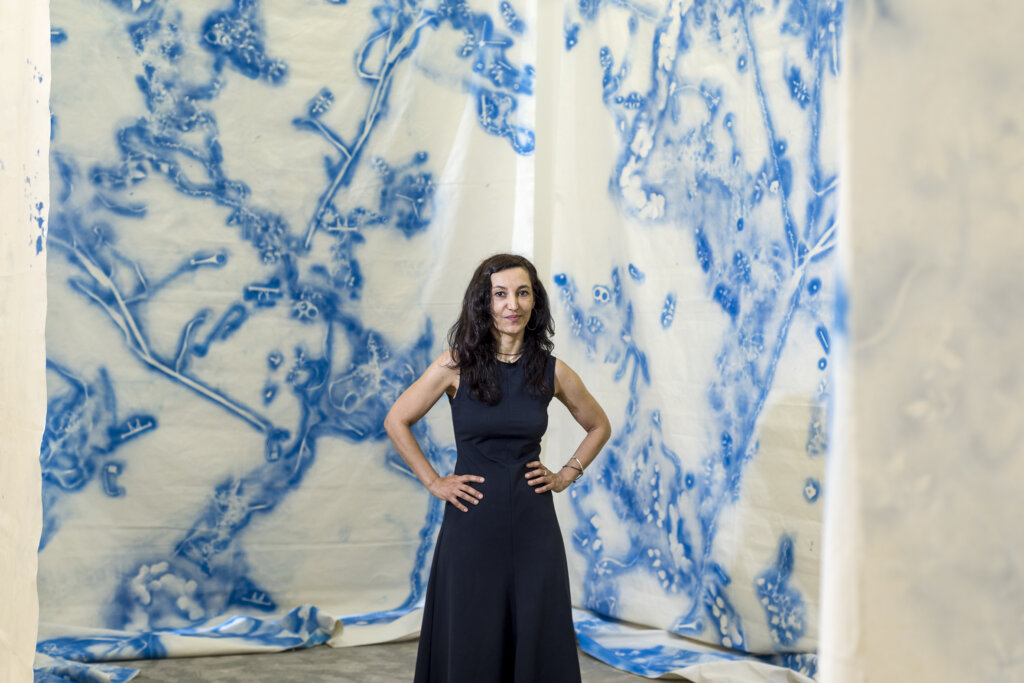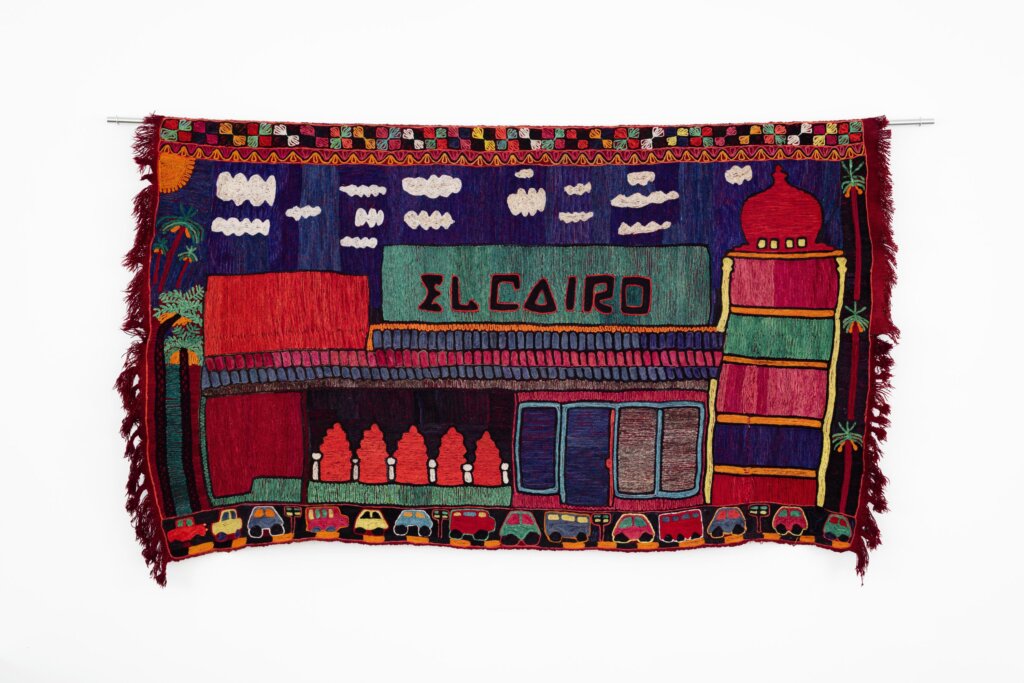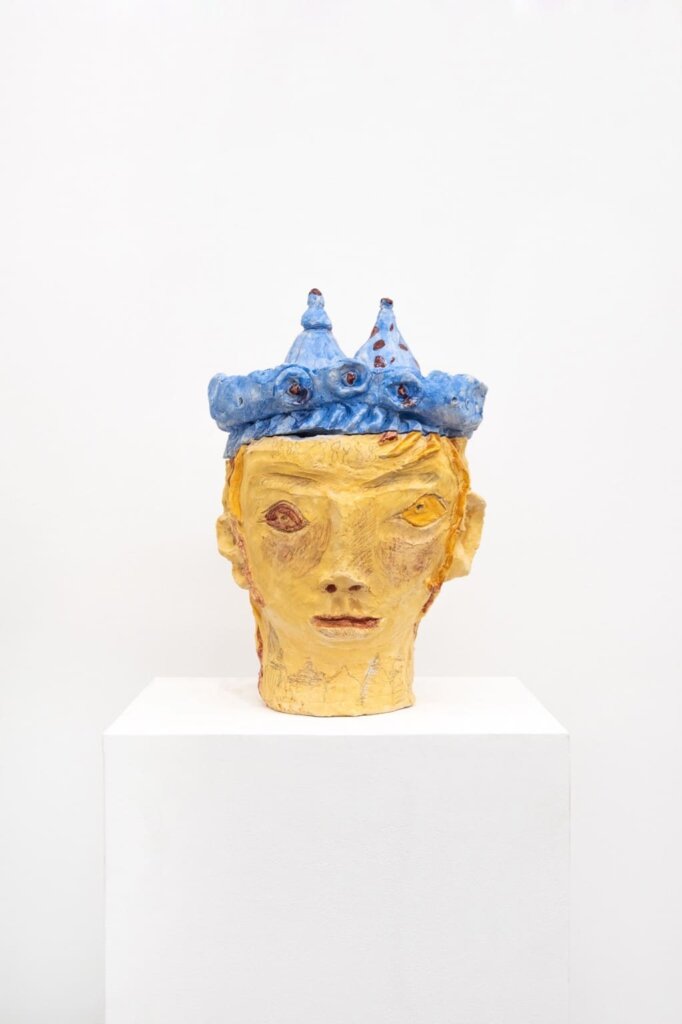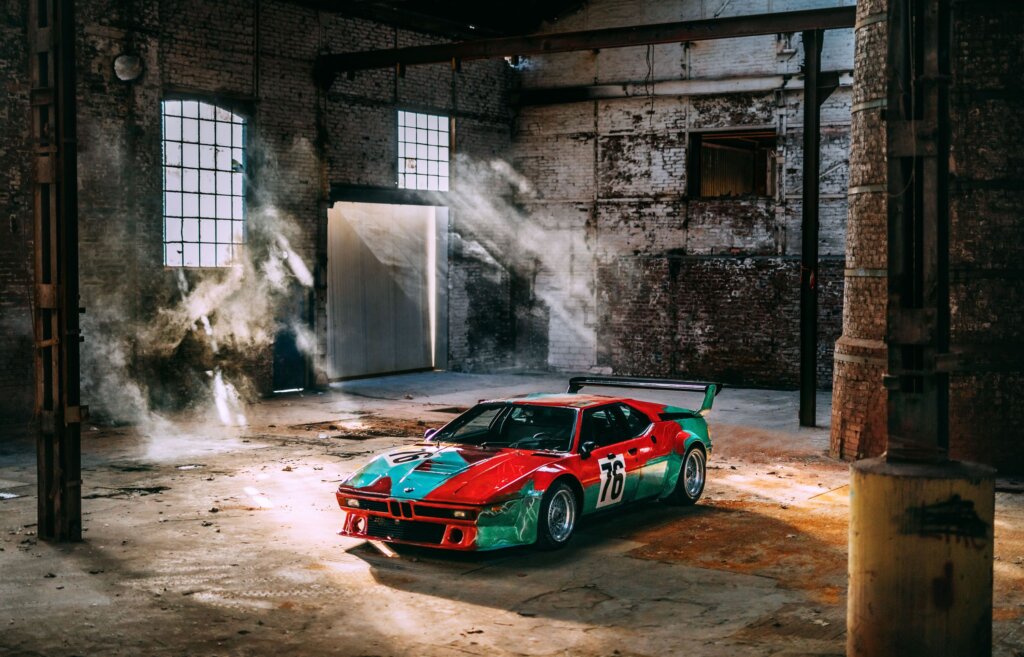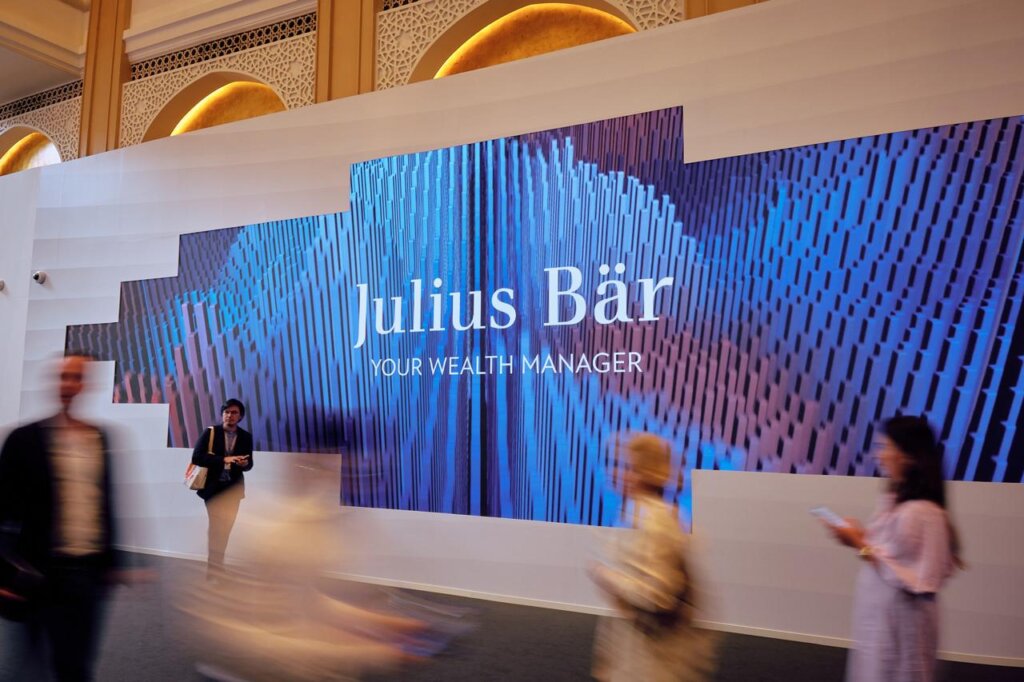The phrase “the new normal” became commonplace during the Covid pandemic, and this year’s Global Art Forum (GAF)—Art Dubai’s flagship transdisciplinary summit—posits the emergence of a new phase and phrase: “The New New Normal”. “It is this idea that we’re constantly having to adjust and update to whatever the next paradigm of normality is, and it keeps coming in an endless deluge,” says Shumon Basar, the Commissioner of GAF about this year’s theme. “Every night, we go to bed, and when we wake up in the morning the world has changed in so many different ways: technologically, socially, politically, financially, emotionally. And this keeps happening.” Here, Basar and this year’s co-curators Hannah Cobb and Declan Colquitt (who collaborate together under the name Y7), explain “The New New Normal” concept and share their highlights from the programme.
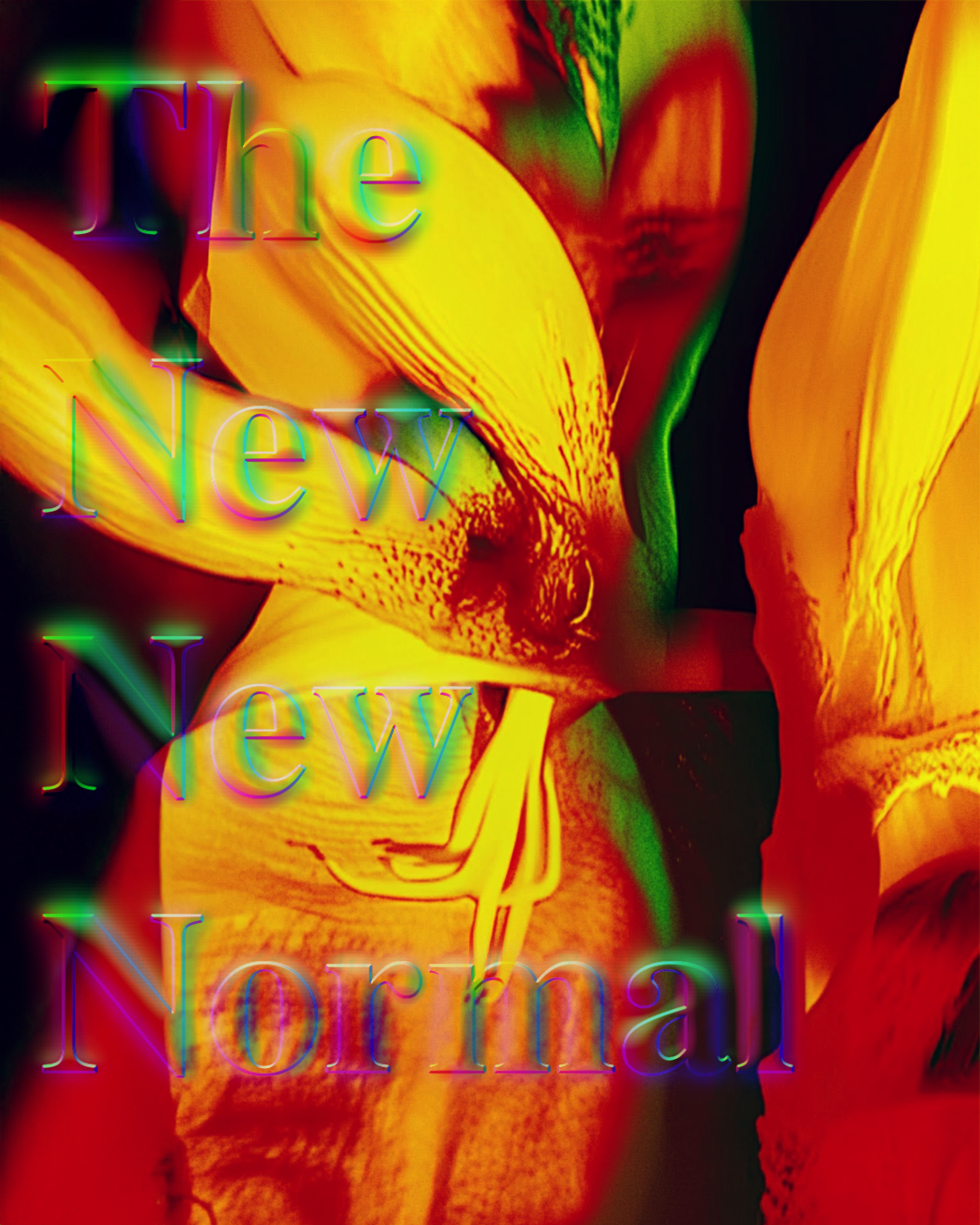
How did you come up with this year’s theme and why did you choose it for this year?
Shumon Basar: Each year I try to take what I call the ‘cultural temperature’ of the time and “The New New Normal” is something I’ve been feeling for some time, certainly since Covid. This year marks the fifth anniversary of the Covid pandemic, when the world shut down. We were getting ready to do Art Dubai at the time, and I had to pivot that version of the Global Art Forum, called “Do You Story?”, into what was perhaps one of the very first digitally oriented programmes of the time. People Zoomed in from Dubai and from all over the world. Also that was when people started using the phrase “the new normal”.
I think ever since then, there’s been a very strong sense that reality is not what it used to be, and even more so recently. I think we’ve moved into what I call ‘sci-fi realism’, which is the sense that reality has actually surpassed the predictions and the visions of science fiction, making those historic visions feel quite quaint now. The future, in a way, ended up being a lot darker than those proposed dystopias, whether it’s Orwellian or whatever. It’s a darker future because it’s fueled by our pleasure and gratification and our endless reliance on convenience. ‘The new new normal’ is when chaos is indistinguishable from progress.
Given the future-looking perspective of the theme, should we expect to see lots of technologians in the talks this year?
SB: There are, I think, great “technology whisperers” in the programme. I’ve always said one of the important functions that artists have played since the birth of modernity is to give us access to what we could call the technological unconscious of technology. I think one thing we have to do as ethical, moral beings is not take technology’s rhetoric at face value and always try to go into the black box of what technology is. So we’ve got a number of people from the world of technology participating, such as Jaya Brekke, for example, who’s one of the world experts on the political economy of the blockchain. But we’ve also got leading figures from the art world, such as Hans Ulrich Obrist, who is going to be presenting on his landmark exhibition WORLDBUILDING: Gaming and Art in the Digital Age. We’ve invited people who will shed light not only on the advances of new technologies, but what these new technologies really mean beyond what they claim to mean.
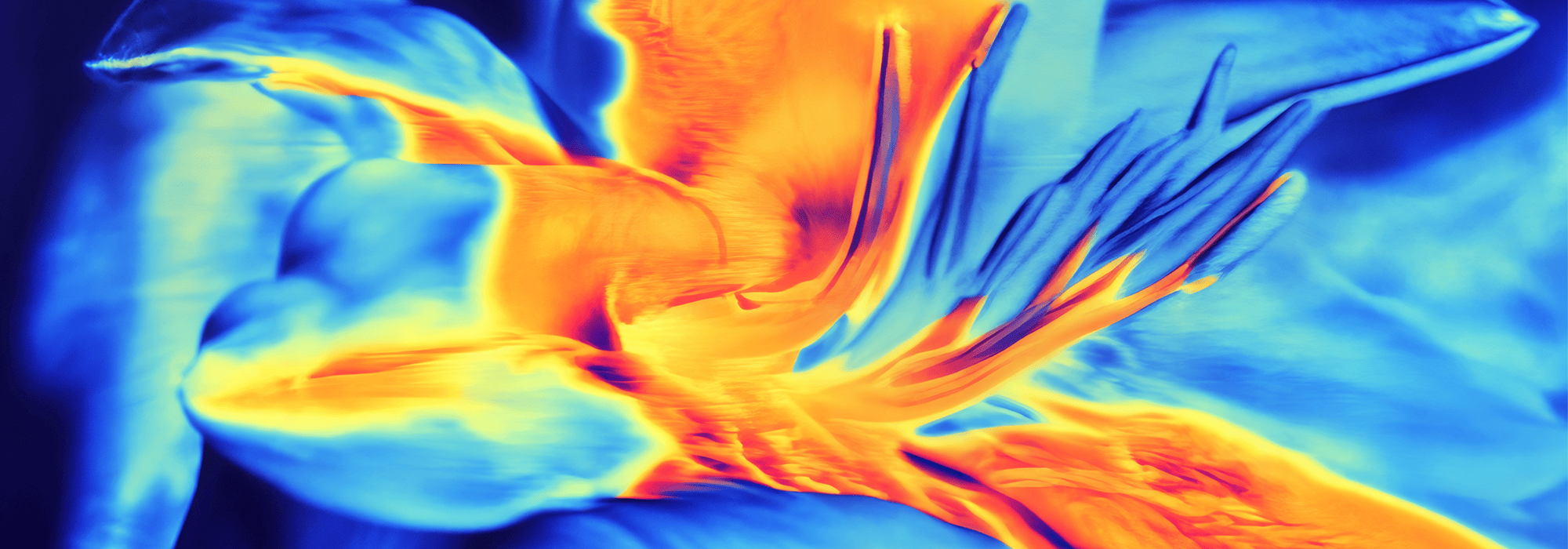
How did the collaboration between you all come about?
Hannah Cobb: So a couple of years ago, myself and Declan were running group listening events in Manchester, and we did one based around two of Shumon’s texts, “The Dawn of Endcore” and “The Laws of Lorecore”. In 2023 we collaborated with Shumon on the final installment of his Lorecore series and last year we took part in the Global Art Forum, presenting short films that we made using emerging AI tools in response to the “Whether or Not” theme.
SB: I think the other extenuating factor here is that we’re all from the north of England and, even though I left over 30 years ago, there’s a kinship, I think, between Northern souls and Northern minds. It’s interesting to think about Global South-ness from a Northern mindset. In a way, I think that to be from the north in the UK is to be from the Global South of the UK.
What are your highlights of this year’s programme?
Declan Colquitt: Outside of Y7 I work as a Project Lead for a creative quantum computing startup based in Somerset House called Moth. There is so much hype about quantum computing but we are in the nascent stages of having a feasible roadmap towards it actually impacting people’s lives. This is the UN-designated International Year of Quantum Science and Technology, led by UNESCO. It’s 100 years since the birth of quantum physics, and also there has been a lot of money put into research around quantum technologies—way more than AI, for example. For GAF, we’ve commissioned the artist and researcher Günseli Yalçinkaya to create a video essay that is looking into the historical impacts of quantum physics on culture, and the potential speculative impacts of quantum computing on culture. The video screening will be followed by a conversation between Yalçinkaya and Konstantinos Meichanetzidis, the Head of Product Development at the quantum computing company Quantinuum.
HC: I am very excited for Zein Majali’s session called “The New New Face of You”. She’s a multimedia artist based in London, and she came to being an artist by way of being a data analyst. She has transplanted that experience and that practice into the way she makes work now, using AI tools and emerging technology. We’ve commissioned her to make a new video work about the face, and particularly the “new face” in terms of augmentation, fillers and reductions, and the way we now view our faces constantly through camera filters that change our appearance. The film will explore the blurring of the line between online and offline, how that is changing the way we see ourselves, and this idea of there being a kind of a collective face developing rather than individual faces. And we will discuss these ideas and the video further with Zein.
SB: The final talk is called “The New New Gulf City” and will be a discussion with the architect Rem Koolhaas and his daughter the artist and writer Charlie Koolhaas. The three of us actually have something in common, which is that it’s exactly 20 years ago that we all landed in Dubai, and began analysing, observing and narrating about what, at the time, could have been considered as the ultimate 21st century startup city. At the time, Dubai was a city of speculative mirages, of these incredible mega projects, like the World Islands and the Palm. The reason why I became so interested in Dubai was that it was exceeding the visions of science fiction cities. But it’s interesting that 20 years later Dubai has gone from a startup city to now arguably being one of the paradigm cities that other places in the world—including London or New York or Paris—look to and try to emulate. And so Rem, Charlie and I will measure the then and now but also look at how this “new, new Gulf city” is not just limited to Dubai but can be found in other parts of the Gulf, like Qatar and Saudi Arabia.
Global Art Forum takes place on Friday, 18 April and Saturday, 19 April at Art Dubai 2025. View the full list of participants and sessions here.
